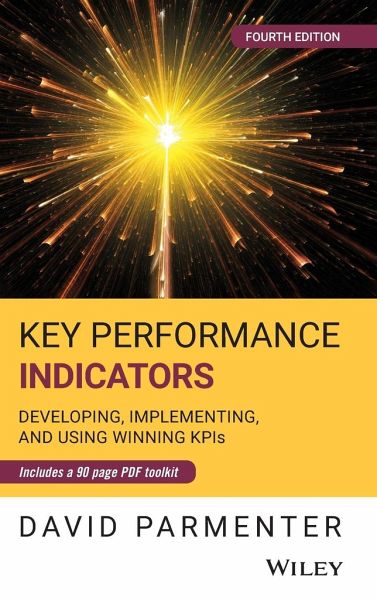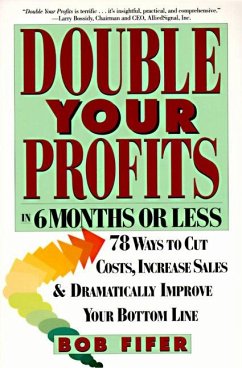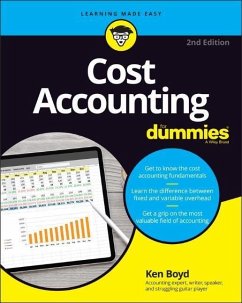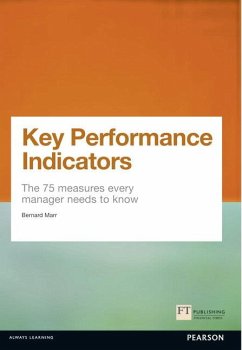
Key Performance Indicators
Developing, Implementing, and Using Winning Kpis
Versandkostenfrei!
Versandfertig in 2-4 Wochen
47,99 €
inkl. MwSt.
Weitere Ausgaben:

PAYBACK Punkte
24 °P sammeln!
KEY PERFORMANCE INDICATORS FOURTH EDITION "This book, already a performance measurement classic, firmly establishes David Parmenter as the 'King of the KPIs'. His first chapter, a timeless classic, is worth the cost of the book alone." --Harry Mills, subject matter expert on persuasion for the Harvard ManageMentor program Rife with examples, worksheets, practice exercises, templates, and other valuable tools, Key Performance Indicators is truly a field guide. Readers will walk away with an understanding of the what, why, and--most importantly--the how of building appropriate and effective KPIs...
KEY PERFORMANCE INDICATORS FOURTH EDITION "This book, already a performance measurement classic, firmly establishes David Parmenter as the 'King of the KPIs'. His first chapter, a timeless classic, is worth the cost of the book alone." --Harry Mills, subject matter expert on persuasion for the Harvard ManageMentor program Rife with examples, worksheets, practice exercises, templates, and other valuable tools, Key Performance Indicators is truly a field guide. Readers will walk away with an understanding of the what, why, and--most importantly--the how of building appropriate and effective KPIs into organizations of all sizes. Key performance indicators are crucial to defining and tracking your organization's progress toward its goals. Setting up the wrong performance measures can lead to unwanted behaviors across an organization, perhaps even destroying value through misalignment and confusion. If you are building KPIs for your organization, Key Performance Indicators will help you avoid these common mistakes and ensure your efforts result in ownership, empowerment, and fulfillment at all levels. This Fourth Edition has been improved by: * Simplifying, reorganizing, and refining the Winning KPI methodology process into a three-stage process * Refining the "selling the change" process by incorporating more reference to the psychology behind resistance to change * A new chapter on the rules for designing measures * New methods David Parmenter has used in KPI implementations * A further refined performance measures database













